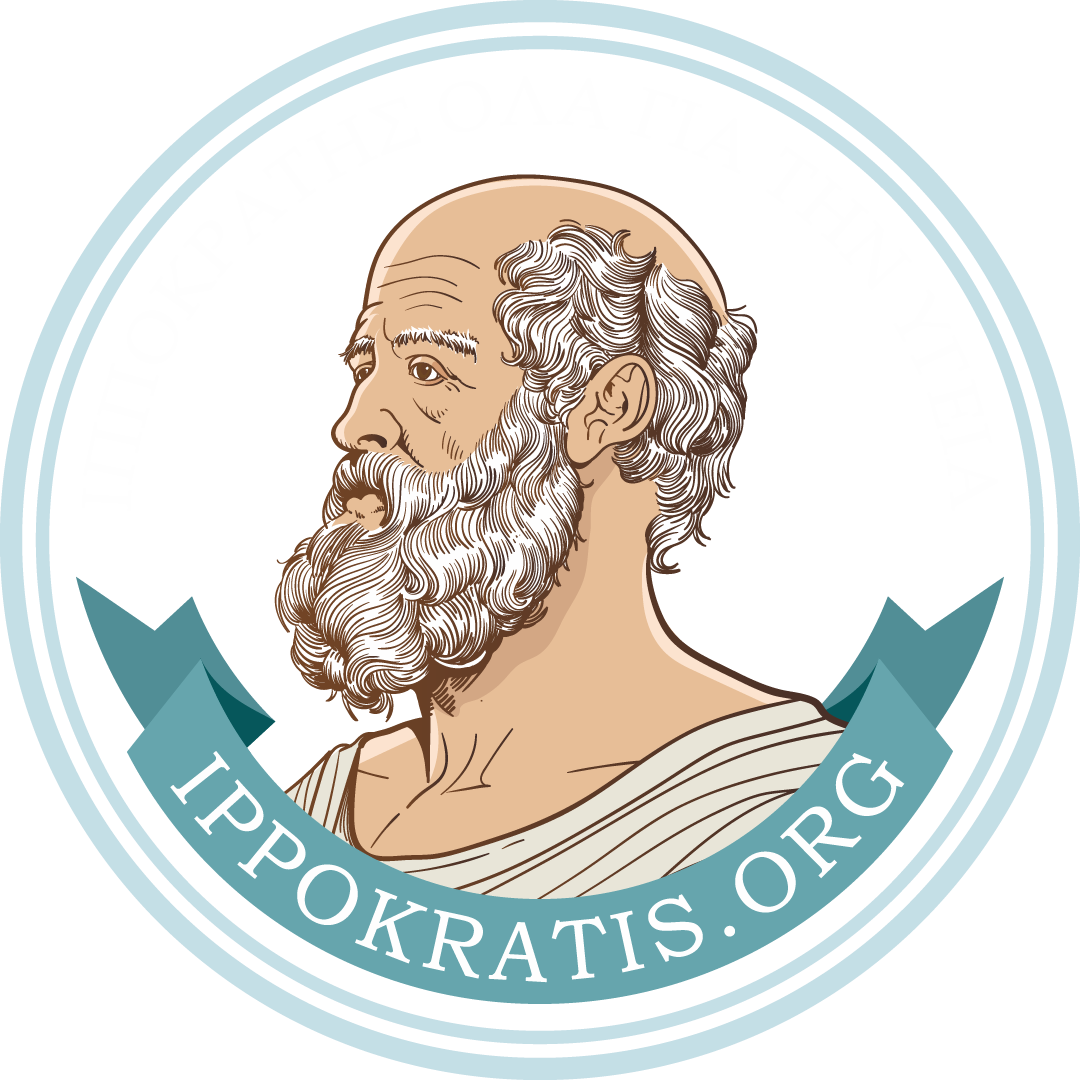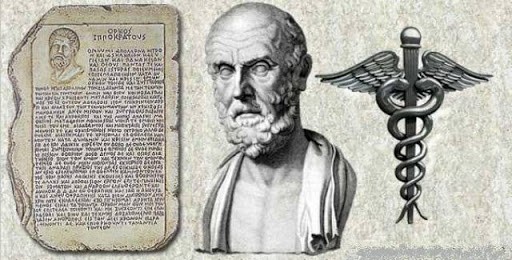-
-
-
The Oath today
Some parts of the oath have been changed or removed over time by various schools and countries. Some schools give some parts of the oath but very few give it in its ancient form which prohibited most general practitioners from abortion, euthanasia and surgery.
Some changes and additions to the oath are as follows:
1. To transmit the ethical rules, oral teaching and all other medical knowledge to my sons, my teacher's sons and the registered students who took the medical oath, but no one else. In the past medical schools have shown preferential treatment to the children of doctors.
2. I will use therapy to help patients to the best of my ability and judgment, but never to harm or wrong. Nor will I give lethal medicine to anyone who asks for it, nor will I make such a suggestion. This is the intention of every physician however this term is bypassed in discussions of euthanasia.
3. I will avoid harming the morals of my society In many countries, a doctor can have his or her license to practice removed if he or she harms the morals of society.
4. I will not intentionally harm anyone for the interests of a third party. Medical organizations worldwide have disapproved of the presence of doctors at legal executions. However, in a small number of cases a physician may induce euthanasia with the consent of himself as well as the patient.
5. Avoid doing things that other disciplines can handle better. The lithiasis mentioned in the oath means kidney and bladder stones. The removal of which can only be done by surgeons. Surgery was not recognized as a specialty at that time. This sentence is now recognized as an understanding that a physician cannot be a specialist in many areas. It also shows the historical difference between surgeons and physicians.
6. Keeping the patient's welfare as a top priority There may be many conflicting "good intentions" such as the good of the community, the preservation of financial resources, support of the justice system or simply making money for the physician.
7. Avoid having sexual relations or other inappropriate relationships with the patient or the patient's family.
References
Hippocrates (1868). Jones, W. H. S., ed. Hippocrates Collected Works. I. Cambridge Harvard University Press. pages 130-131.
2. From Wikipedia, the free encyclopedia https://el.wikipedia.org/wiki/%CE%8C%CF%81%CE%BA%CE%BF%CF%82_%CF%84%CE%BF%CF%85_%CE%99%CF%80%CF%80%CE%BF%CE%BA%CF%81%CE%AC%CF%84%CE%B7
-
-
Friends
GEORGIOS HARMANIS - Pediatric Surgeon
@giorgosharmanisyahoo-gr
Nancy
@nancy
MariosMpekes
@mariosmpekes
E-HEALTH SERVICES
@dachealthnetwork24
Groups
ALL ABOUT HEALTH
Public Group
MEDICINE & PHARMACOLOGY
Public Group
SPORTS MEDICINE - SPORTS MEDICINE
Public Group
Recent posts

Ημικρανίες: Αιτίες, Διαχείριση και Διατροφή
- March 10, 2024

Ανακούφιση από τους Πόνους χωρίς Φάρμακα
- March 10, 2024
E-mail Address
ADDRESS
Georgiou Lyra 14-16, Kifissia 14561
Website
Phone Number
+302117505570
Media
Photos
Videos
Audios
Files














The Hippocratic Oath
The Hippocratic Oath is the oath taken by physicians and refers to the ethical practice of medicine. It is believed to have been written by Hippocrates in the 4th century BC or by one of his students and is therefore included in the state collection. Although of more historical and moral value, the oath is considered a rite of passage for those practicing medicine, however it is no longer mandatory and is not taken by all physicians.
The oath
The original oath
Here is the oath in ancient Greek.[1]
Omnium Apollo itron, and Asclepius, and Health, and Panacea, and all the gods, and all the gods, and all the gods, and the history maker, and the performer of the power and the judgment, and the one orc and the xylographer of the orc.
To lead him that hath been taught in this craft is both to make a generation, and a life together, and to make a tradition of the use of it, and a generation of the brethren out of the house is both to criticize the brethren, and to teach this craft, which they use to learn, without pay and without copy, and without commission, and without the use of any other form of learning, to be taught by adoption, and by the same, and by the same of those that have been taught us, and to be taught by the disciples, and by those that are sworn by the law, and by those that are sworn by the law, and by none else.
I will use my judgment for the good of them that are in strength and judgment, and for the good of the unrighteous and the unrighteous.
And I will give no medicine to any one that asketh thee a deadly thing, neither will I give a medicine to any one that asketh thee a deadly thing. Neither shall I give any woman a psalter of phthisis. But I will keep my life pure and perfect, and my art pure and perfect.
And I shall not be a stoner, but I shall give up my work, and I shall give up my labor to you.
And if I be in your house, I will go about for the benefit of those who are in need, besides all unrighteous lust and corruption, and all other unrighteous works upon the bodies of women and men, both free and bond.
But if I see or hear in healing, or if I hear, or if without healing, according to the experience of men, and never use to speak outwardly, I am silent, these things are sufficient.
Oaths to me to be a maker of all things, and not to be beaten, and to be praised, both of life and of art, glorified by all men for ever. And by transgressing and being overthrown, he shall not be able to do so.
Performance in New Greek
I swear by the god Apollo the physician and by the god Asclepius and by Health and Panacea and I invoke the testimony of all the gods that I will execute this oath and this agreement to the best of my power and judgment.
To consider my teacher of the art of medicine equal to my parents and the companion of my life. And when money is needed, I share mine with him. To consider his family my brothers and sisters and to teach them this art if they want to learn it without tuition or other agreement.
To pass on the ethical rules, oral teaching and all other medical knowledge to my sons, my teacher's sons and the registered students who took the medical oath, but no one else.
I will use therapy to help patients to the best of my ability and judgment, but never to harm or wrong. Nor will I give lethal medicine to anyone who asks for it, nor will I make such a suggestion.
Likewise, I would not trust a pregnant woman with a means to induce an abortion. I will keep both my life and my art pure and untainted. Nor will I use a scalpel on those who suffer from lithiasis, but I will entrust this work to the experts in the art.
In all the houses I go to, I will enter to help the sick and refrain from any intentional harm and damage, and especially from sexual acts with men and women, free and slave. And whatever I may see or hear in the course of treatment or beyond my professional occupations in my daily life, that which must not be known outside, I will not disclose, considering these matters to be secrets.
If I keep this oath and do not break it, may I always enjoy respect among men for my life and for my art. But if I break it and swear it, let the opposite happen to me.